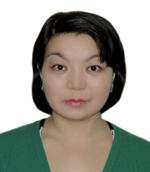President Nursultan Nazarbayev’s state-of-the-nation address, “Kazakhstan 2050 Strategy: A New Political Course for an Established State,” embraces several key national goals, including the peaceful coexistence of various ethnicities and religious tolerance.
 Peace and interethnic harmony are major national values here in Kazakhstan. Peaceful coexistence between different cultures and civilisations in our multinational country has become a model for many nations around the world.
Peace and interethnic harmony are major national values here in Kazakhstan. Peaceful coexistence between different cultures and civilisations in our multinational country has become a model for many nations around the world.
President Nazarbayev underlined the need to strengthen inter-faith partnerships, further develop inter-confessional dialogue and preserve and strengthen the values of modern civilisation. He outlined the principles of inter-confessional dialogue in the modern world, which was reflected in the unique joint document, “The Principles of Inter-religious Dialogue.”
Kazakhstan serves as a bridge between major world religions, namely Islam, Christianity and Buddhism. For centuries, representatives of various nations and ethnic groups have lived and worked together here in peace. As a result, strong cultural and economic ties have evolved; they are accompanied by concern for the welfare and prosperity of the people.
Due to effective government policies towards religion and personal responsibility and the efforts of our country’s leadership, ethnic conflict and religious confrontation have lost anything that could even resemble a haven in Kazakhstan.
Today, terrorism and extremism pose particularly complex challenges to the world. Radicals use religion to play with the minds of unsophisticated people in different parts of the world.
In 2003, President Nazarbayev launched an initiative to hold the first Congress of World and Traditional Religions in Astana. The event became an important stepping stone in Kazakhstan’s quest to become a facilitator of dialogue between different faiths.
Religious leaders from across the world praised the initiative of President Nazarbayev. The Congress was supported by Dr. Abdullah bin Abdul Mohsin Al-Turki, the Secretary General of the Muslim World League, the Patriarch of Russian Orthodox church Alexy II, Holy Father Pope John Paul II, Chief Ashkenazi Rabbi of Israel Iona Metzger and many other world famous religious leaders and figures.
With support from heads of state and leaders of world and traditional religions, the First Congress of Leaders of World and Traditional Religions took place on Sept. 23 and 24, 2003 in Astana. A total of 17 delegations from 14 countries around the world participated in the event.
The Congress received congratulatory letters from the leaders of both foreign countries and international organisations, as well as from various religious leaders, including Patriarch of Russian Orthodox Church Alexy II, Pope John Paul II, Archbishop of Canterbury Rowan Williams and Patriarch Bartholomew of Constantinople.
The first congress greatly contributed to the global process of inter-civilisational and intercultural dialogue. It reflected the efforts of the global community in addressing the so called clash of civilisations and global challenges resulting from cultural and religious differences and building a world based on tolerance, development and security.
At the first congress, a decisive step to strengthen harmony and establish a constructive dialogue between different civilisations, confessions, countries and peoples was made.
During the first congress, a declaration was issued in which the spiritual leaders declared their intention to take joint actions to safeguard peace and progress on behalf of all of mankind and ensure stability in society for a harmonious future.
Following the congress, delegates came to the conclusion that religious dialogue should be profound and based on dialogue.
The success of the event was highlighted by the decision of the first congress to hold the interreligious forum every three years. With this decision, Kazakhstan was granted the honor of organising the second Congress of Leaders of World and Traditional Religions in Astana.
Also, Kazakhstan was given the responsibility of developing all aspects of the secretariat of the congress.
One of the initiatives put forth at the first congress was building a special venue for the Congress of Leaders of World and Traditional Religions, which was successfully embodied by Norman Foster in Astana’s Palace of Peace and Harmony. Since 2006, all congress events have been held in the palace, which has also housed the congress secretariat and other permanent bodies.
More than a decade has passed since the first congress was convened. In 2013, a large international conference was held to mark the important historical date. Four congresses and 12 secretariat meetings have been held in Astana during these fruitful years.
In his address, the Kazakh President said: “Kazakhstan is our sacred home. Future generations will be living on this precious land in prosperity. By the will of fate, many different nationalities have been living here together. We opened our heart and showed them Kazakh hospitality. They grew up here and became our brothers. Nowadays, we are one multinational and united country. The era of globalisation is an epoch of multinational states. This is a global process. All nationalities and ethnic groups have contributed to the development of our country. No one has the right to discriminate against our people and infringe on our independence, or interfere with the brotherhood of our nation. A man who loves and respects his people will respect other nations. If we respect ourselves, others will respect us.” Therefore, let’s continue our regular meetings in the peaceful and hospitable country we call Kazakhstan at the upcoming 5th Congress in 2015.
The author is Deputy Dean for Scholarly Work, Faculty of International Relations, Eurasian National University.
